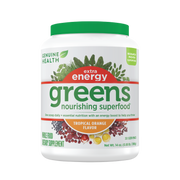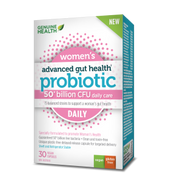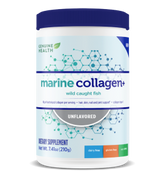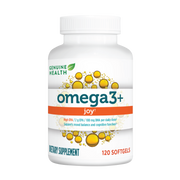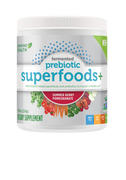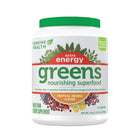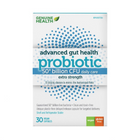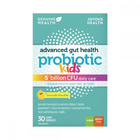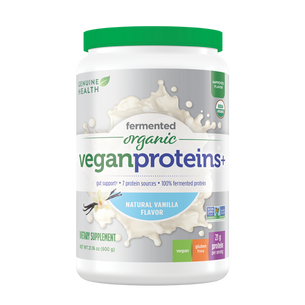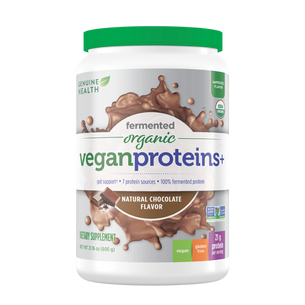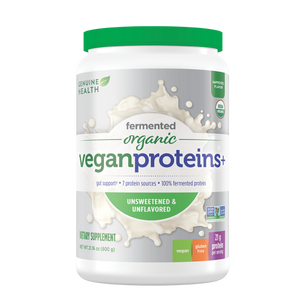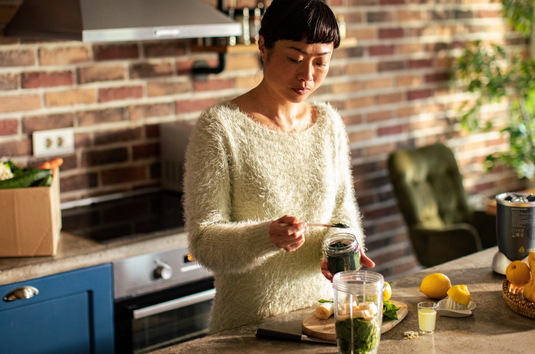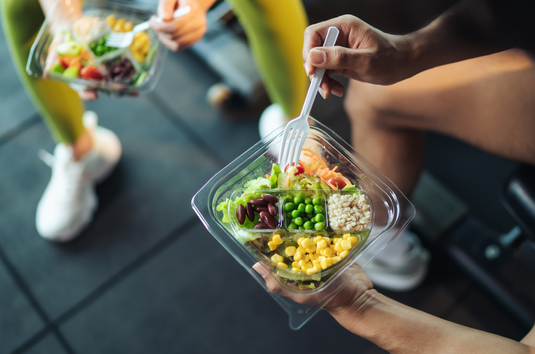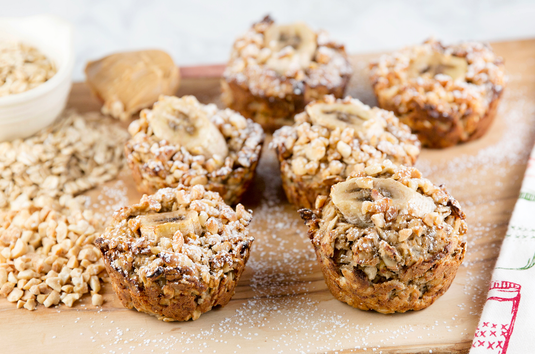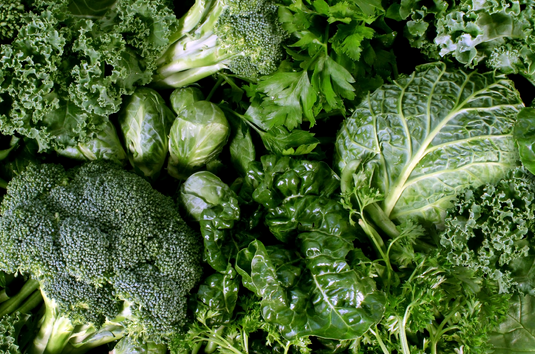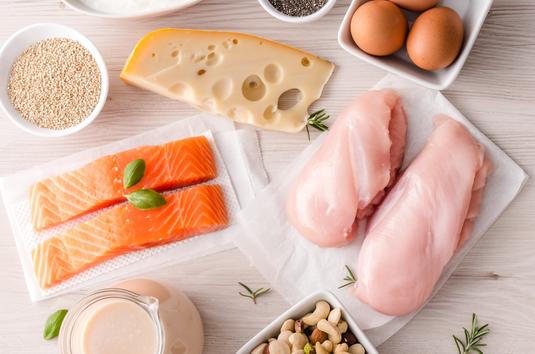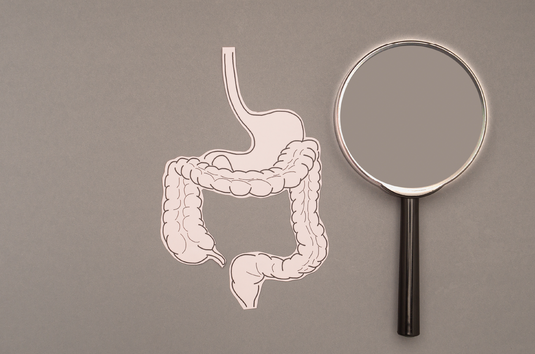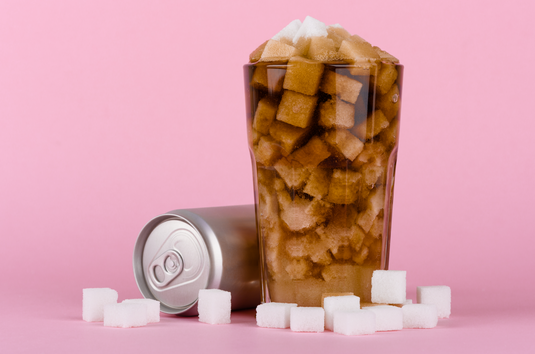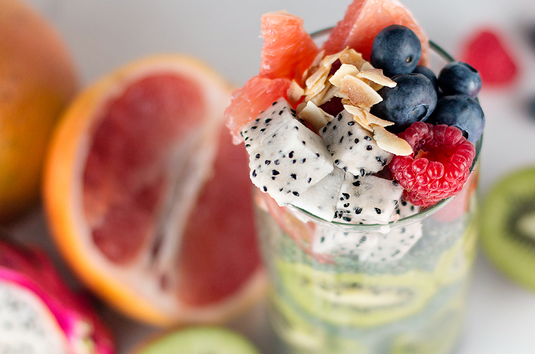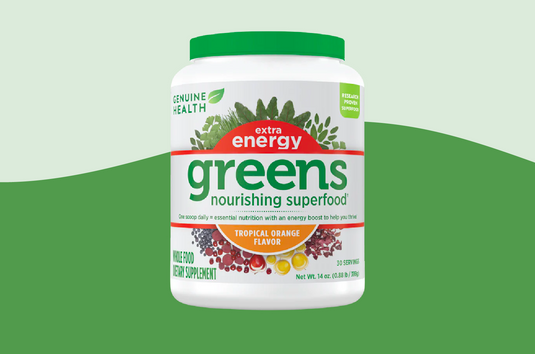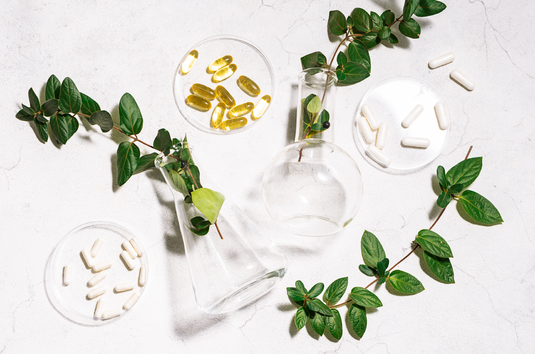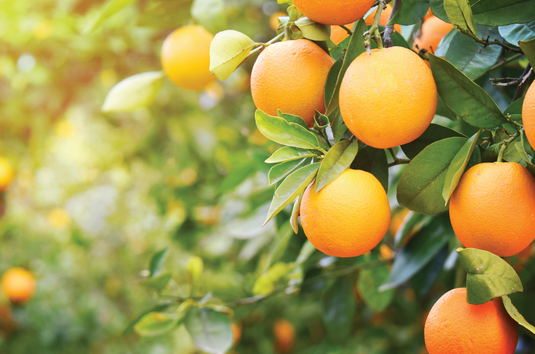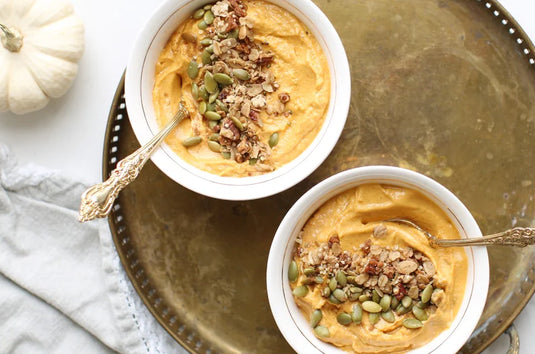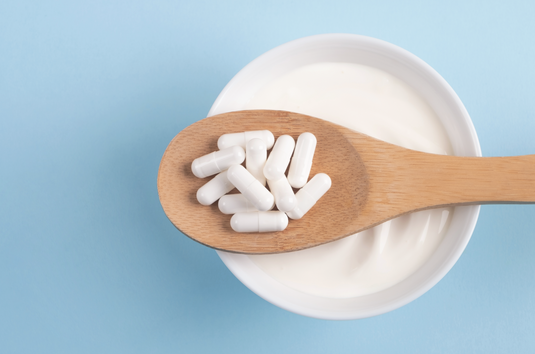More Balanced: The Story of Protein Combining

Protein fuels nearly every process in the body, and second to water, protein is essential for life! Our bodies need protein for structural purposes, like maintaining our skin, bones, hair and fingernails. We also need protein for non-structural purposes like digestion, immunity, acid and alkaline balance, and hormone and neurotransmitter synthesis.
Protein is IMPORTANT, and our goal is to give you MORE from your protein supplement.
To talk about protein, we must begin by talking about amino acids. All foods contain amino acids, which are known as the “building blocks” of protein. Of all the amino acids, there are a small number that are called “essential” because they cannot be made by the body and must be obtained from the diet:
The tricky thing is that plant-based protein foods contain differing amounts of essential amino acids. Let’s take this diagram as an example.

See how the egg has similar levels of all amino acids? Now look at the beans, which are lower in tryptophan and methionine, and how rice is low in lysine. These are known as the “limiting amino acids” because the protein quality of either rice or legumes is only as good as the lowest amino acid. When beans and rice are combined, however, the amino acid profile is balanced.
Although the idea of protein combining at every single meal has been “debunked” in recent years, it just means that plant-protein foods don’t need to be combined at every single meal. If you eat a variety of plant-based foods, like rice, beans and legumes, greens, nuts and seeds – providing unique amino acid profiles – you should get your protein needs met over the course of the day.
For this reason, single-source plant based proteins have shortcomings – like rice or pea protein, which are incomplete proteins, and don’t offer an optimal spectrum of amino acids.
For example, vegans have been found to have close to 50% less lysine and 20% less tryptophan than meat-eaters. These essential amino acids contribute to overall health and have been shown to improve mood, lower stress and diminish tension (1).
Legumes, like pea and mung beans provide much more lysine than brown rice alone – that’s why we combine plant-based protein sources in fermented vegan proteins+.
Just look at some diets of other societies for inspiration:
This is why we combine proteins in fermented vegan proteins+ – because just as you wouldn’t rely on rice or peas to meet all of your plant-based protein needs, you wouldn’t want a single source in your protein supplement. Our unique combination of 7 non-GMO, low-allergen, protein-rich, fully fermented plant ingredients results in a protein supplement that is rich in every essential amino acid!
We use rice and pea protein in our fermented vegan proteins+, but we don’t stop there – we also include a blend of spirulina, alfalfa, mung bean sprouts, quinoa sprouts and hemp to round out the amino acids and provide increased nutrition. This all translates to a highly absorbable protein supplement that gives you 20 grams of usable protein in every scoop!
This variety of plant-based protein sources provides a wide spectrum of complimentary proteins, ensuring that you get the full range of amino acids, including the essentials that cannot be made from the body and need to be supplied by the diet!
References
Protein is IMPORTANT, and our goal is to give you MORE from your protein supplement.
To talk about protein, we must begin by talking about amino acids. All foods contain amino acids, which are known as the “building blocks” of protein. Of all the amino acids, there are a small number that are called “essential” because they cannot be made by the body and must be obtained from the diet:
- Histidine
- Isoleucine
- Leucine
- Lysine
- Methionine
- Phenylalanine
- Threonine
- Tryptophan
- Valine
Plant-based proteins: only as good as the weakest player
The tricky thing is that plant-based protein foods contain differing amounts of essential amino acids. Let’s take this diagram as an example.

See how the egg has similar levels of all amino acids? Now look at the beans, which are lower in tryptophan and methionine, and how rice is low in lysine. These are known as the “limiting amino acids” because the protein quality of either rice or legumes is only as good as the lowest amino acid. When beans and rice are combined, however, the amino acid profile is balanced.
Although the idea of protein combining at every single meal has been “debunked” in recent years, it just means that plant-protein foods don’t need to be combined at every single meal. If you eat a variety of plant-based foods, like rice, beans and legumes, greens, nuts and seeds – providing unique amino acid profiles – you should get your protein needs met over the course of the day.
For this reason, single-source plant based proteins have shortcomings – like rice or pea protein, which are incomplete proteins, and don’t offer an optimal spectrum of amino acids.
For example, vegans have been found to have close to 50% less lysine and 20% less tryptophan than meat-eaters. These essential amino acids contribute to overall health and have been shown to improve mood, lower stress and diminish tension (1).
Legumes, like pea and mung beans provide much more lysine than brown rice alone – that’s why we combine plant-based protein sources in fermented vegan proteins+.
The sum is greater than the parts
Just look at some diets of other societies for inspiration:
- Corn tortillas with beans or rice with beans in Latin America
- Bulgur wheat with chickpeas or falafel with pita and hummus in the Middle East
- Rice or flatbread with dahl lentils and yogurt in India
- Soy foods with rice in Asia
This is why we combine proteins in fermented vegan proteins+ – because just as you wouldn’t rely on rice or peas to meet all of your plant-based protein needs, you wouldn’t want a single source in your protein supplement. Our unique combination of 7 non-GMO, low-allergen, protein-rich, fully fermented plant ingredients results in a protein supplement that is rich in every essential amino acid!
We use rice and pea protein in our fermented vegan proteins+, but we don’t stop there – we also include a blend of spirulina, alfalfa, mung bean sprouts, quinoa sprouts and hemp to round out the amino acids and provide increased nutrition. This all translates to a highly absorbable protein supplement that gives you 20 grams of usable protein in every scoop!
This variety of plant-based protein sources provides a wide spectrum of complimentary proteins, ensuring that you get the full range of amino acids, including the essentials that cannot be made from the body and need to be supplied by the diet!
References
- Smriga, et al. Oral treatment with L-lysine and L-arginine reduces anxiety and basal cortisol levels in healthy humans. Biomed Res. 2007 Apr;28(2):85-90.



